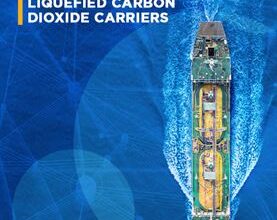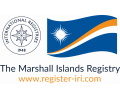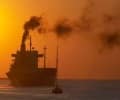dioxide
-
Decarbonization
“K” LINE Begins Participating in Joint Study on Liquefied CO2 Marine Transportation for Carbon Dioxide Capture and Storage
Kawasaki Kisen Kaisha, Ltd. (“K” LINE) has reached an agreement with TOKYO GAS CO., LTD. (“Tokyo Gas”) regarding a joint…
Read More » -
Decarbonization
ABS Publishes Industry-Leading Requirements for Liquefied Carbon Dioxide (LCO2) Carriers
ABS sets its sights on the vessels that will support the next step in the path of decarbonization with its…
Read More » -
News
ABS Publishes Industry-Leading Requirements for Liquefied Carbon Dioxide (LCO2) Carriers
Guidance Addresses Next-Generation Vessels Transporting Captured CO2 (HOUSTON) ABS sets its sights on the…
Read More » -
Decarbonization
Republic of the Marshall Islands to Flag Two First-ever 22,000 Cubic Meters Liquid Carbon Dioxide Carrier Newbuilds
The Republic of the Marshall Islands (RMI) will flag the first-ever state-of-the-art 22,000 cubic meters (cbm) liquid carbon dioxide (LCO2)…
Read More » -
Decarbonization
Carbon dioxide shipping set to surge on rising offshore storage demand
Carbon dioxide transportation is shifting to the seas as emitters look to move captured gas to offshore storage projects, according…
Read More »





